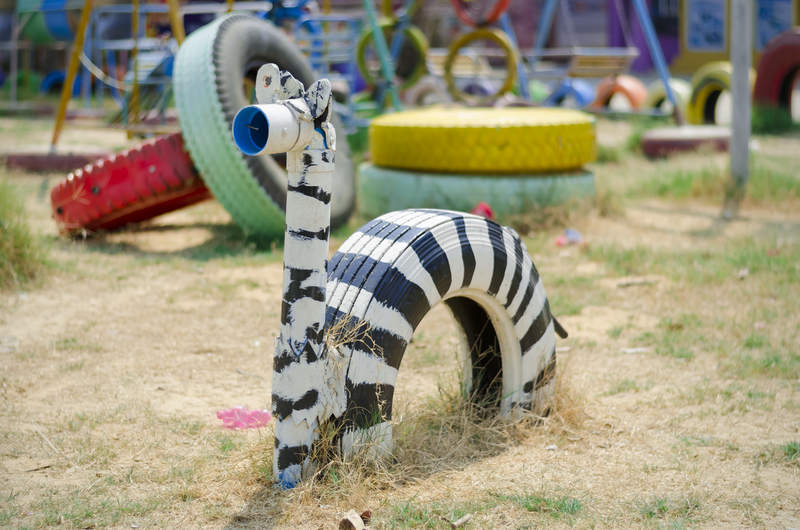Understanding Scrap Metal Rules for Pots and Pans
Scrap metal recycling is a crucial part of environmental sustainability, and it starts right at home! One of the most frequently asked questions by householders is: Can pots and pans be scrapped? This comprehensive guide dives into the answer, explores the scrap metal rules for pots and pans, and offers practical advice to ensure you recycle responsibly and efficiently.

Why Recycle Pots and Pans?
- Environmental Conservation: Recycling old cookware reduces landfill waste and conserves vital natural resources.
- Economic Benefits: Scrap metal recycling can yield monetary returns and supports the global supply chain.
- Community Impact: Encourages local recycling efforts and promotes a cleaner city or neighborhood.
Before you toss your old frying pan or dented saucepan, understand the scrap metal rules that apply to pots and pans. Let's explore what makes metal cookware recyclable, how to prepare it for recycling, and what guidelines you should always follow.
Types of Cookware Metals
Identifying the material of your cookware is the first step in understanding its scrap value.
- Stainless Steel: Durable and commonly scrapped. Often found in premium cookware sets, stainless steel pots and pans are highly valued at scrap yards.
- Aluminum: Lightweight and popular for non-stick pans. Aluminum is a sought-after metal in the recycling industry.
- Copper: Known for excellent heat conductivity. Copper-bottom pans and pure copper cookware are among the highest valued items for recycling.
- Cast Iron: Tough and almost indestructible. Although heavy, recycled cast iron is easily accepted by most scrap metal dealers.
Each of these materials is recyclable, but specific scrap metal yard rules may apply to each type.
How to Identify Metal Type
- Magnet Test: Use a magnet--if it sticks, it's likely steel or cast iron; if not, it's probably aluminum or copper.
- Color: Shiny silver is usually aluminum or stainless; reddish is copper; dark and heavy is likely cast iron.
- Markings: Look for manufacturer's stamps on the bottom for material information.
General Scrap Metal Rules for Pots and Pans
Most pots and pans are recyclable, but key rules determine whether your cookware is accepted at the local scrap yard or municipal recycling facility:
- Cleanliness: Remove all food residue and ensure the cookware is clean. Excess oils or burnt food may lead scrap yards to reject your items.
- Non-Metal Parts: Take off plastic handles, glass lids, and rubber knobs before recycling. If it's not metal, it shouldn't go in the scrap pile.
- Type of Metal: Separate by metal type if possible. This ensures you get the correct price per pound and helps the recycling process.
- Coatings: Non-stick coatings (e.g., Teflon), enamel, or paint are generally okay in small amounts but check your facility's policy. Large amounts of coating may require landfill disposal.
- Hazardous Materials: Some older pans (e.g., certain enamel-coated pans) may contain hazardous substances. Consult your scrap dealer if unsure.
- Bulk Amounts: If you have a large volume of cookware, contact your local center beforehand to arrange a drop-off or pick-up.
Are Non-Stick Pans Recyclable?
Modern non-stick pans are generally made from aluminum or stainless steel, both of which are recyclable metals. The issue is with their non-stick coating, usually PTFE (commonly known as Teflon).
- Condition Matters: If the non-stick surface is peeling or damaged, it's best to consult your recycling provider. Many accept pans with minor coatings, removing them during processing.
- Preparation: Remove handles, glass, and as much of the coating as practical.
- Alternative Disposal: If the facility refuses your pan, check for household hazardous waste programs, or consider repurposing your pan (e.g., as a garden tool holder).
Steps to Prepare Pots and Pans for Scrap Metal Recycling
Follow these steps for effective recycling:
- Clean Thoroughly: Scrub out any food debris. Oil, grease, and old meals can contaminate batches at the yard.
- Disassemble Parts: Use a screwdriver to remove handles and any attached non-metal pieces.
- Sort by Metal Type: Use the magnet test and visual checks to organize cookware into aluminum, stainless, copper, and iron piles.
- Transport Safely: Place like metals together and secure them for transport to avoid injury or damages.
Where to Recycle Your Pots and Pans
- Local Scrap Yards: Most scrap metal facilities take old cookware if prepared correctly.
- Municipal Recycling Centers: Some cities accept scrap metal in their curbside collection programs--check rules via the official website or hotline.
- Household Waste Programs: Certain events or hazardous waste programs accept older pans, especially if Teflon-coated.
- Donation Centers: If the cookware is still usable, consider donation. Thrift stores, charities, and shelters may have a need for usable pots and pans.
Understanding Pricing at the Scrap Yard
Scrap prices fluctuate based on the metal type and current market demand. Here's what to know when you bring in your cookware:
- Copper: Fetches the highest price. If your pans are pure copper or have significant copper content, separate them for maximum value.
- Aluminum: Often lightweight, aluminum cookware is valued for its purity and reasonable price point.
- Stainless Steel: Respected for its durability, but pricing may be lower than pure copper or sorted aluminum.
- Mixed Metal: You may get "dirty" metal pricing if pans are not separated or cleaned. This is lower than sorted, clean metal.
Always ask for the current price per pound and whether sorting can increase your payout.
Scrap Metal Rules for Businesses and Commercial Kitchens
Commercial kitchens, restaurants, and catering businesses generate high volumes of old cookware. Here's what business owners should know:
- Volume Discounts: Large lots may qualify for pick-up service or higher pricing tiers.
- Documentation: Keep records for business sustainability reporting or tax deductions on scrap metal sales.
- Hazardous Materials: Check for older cookware that may contain lead or hazardous coatings--proper disposal is a must.
- Bulk Sorting: Businesses can often benefit by sorting metals before collection, ensuring maximum returns and easier accounting.
Partnering with Scrap Dealers
- Choose Licensed Dealers: Always work with scrap yards licensed for business waste. This ensures compliance with local laws and environmental standards.
- Scheduled Pickups: Arrange regular pickups to avoid storage issues and keep operations efficient.
Special Considerations for Vintage or Antique Cookware
Not all old cookware belongs in the scrap pile! Some cast iron pans, copper saucepans, or branded vintage pieces may have resale or collector value. Before recycling:
- Research the Brand and Age: Antique cast iron or copper pans often fetch much more in resale markets than they do as scrap metal.
- Check Online: Look at auction sites and collector boards to determine if your pan is in demand.
- Consult an Appraiser: For rare items, professional appraisals can help you make the best decision.
Frequently Asked Questions about Scrap Metal Rules for Pots and Pans
Can I Scrap Pots and Pans with Burnt or Chipped Coatings?
In most cases, minor coatings or burnt surfaces are acceptable. However, excessive plastic or plastic-bonded coatings should be removed. Always ask your local yard for specific rules.
Do I Need to Remove Rivets or Screws?
No need to remove metal rivets or screws--they are processed with the cookware during recycling.
What If My Local Curbside Pickup Doesn't Accept Pots and Pans?
Take them directly to a scrap yard or check for special metal drop-off events in your municipality.
Can I Put Pots and Pans in My Blue Bin?
Most curbside programs do not accept large metal objects like pots and pans. Double-check your city's recycling guidelines to avoid contamination.
Is There a Difference Between Household and Commercial Scrap Rules?
Yes. Commercial waste may be subject to stricter documentation, quantity thresholds, and pickup scheduling. For large-scale disposal, always coordinate with a certified scrap metal dealer.

Tips for Sustainable Cookware Recycling
- Donate Before You Scrap: If pans are still usable, donation extends their life and helps those in need.
- Repurpose Old Cookware: Old pots make excellent planters, tool organizers, or birdbaths for your garden.
- Group Small Items: Bolster your scrap load with other metal kitchenware (cutlery, trays) for efficient trips.
- Stay Informed: Recycling regulations can change, so stay current by checking your local government's guidelines.
Conclusion: Recycling Pots and Pans for a Greener Tomorrow
Understanding scrap metal rules for pots and pans is a simple yet impactful way to contribute to sustainability. Taking the time to sort, clean, and correctly dispose of your old cookware ensures that valuable metals are reused rather than wasted. Whether you're an eco-conscious homeowner, a local business, or simply cleaning out your kitchen, following these scrap metal recycling rules helps protect the environment and can even put a little extra money in your pocket.
For more information, contact your local recycling center or scrap yard to clarify guidelines for pots and pans recycling in your community. Together, we can make recycling a household habit!
